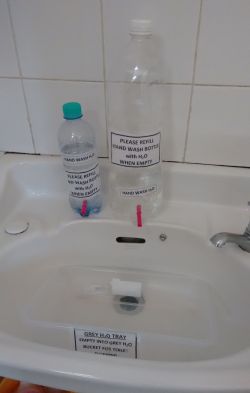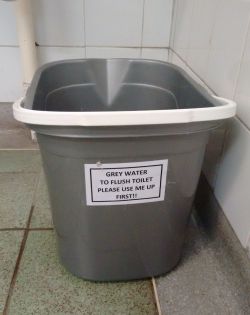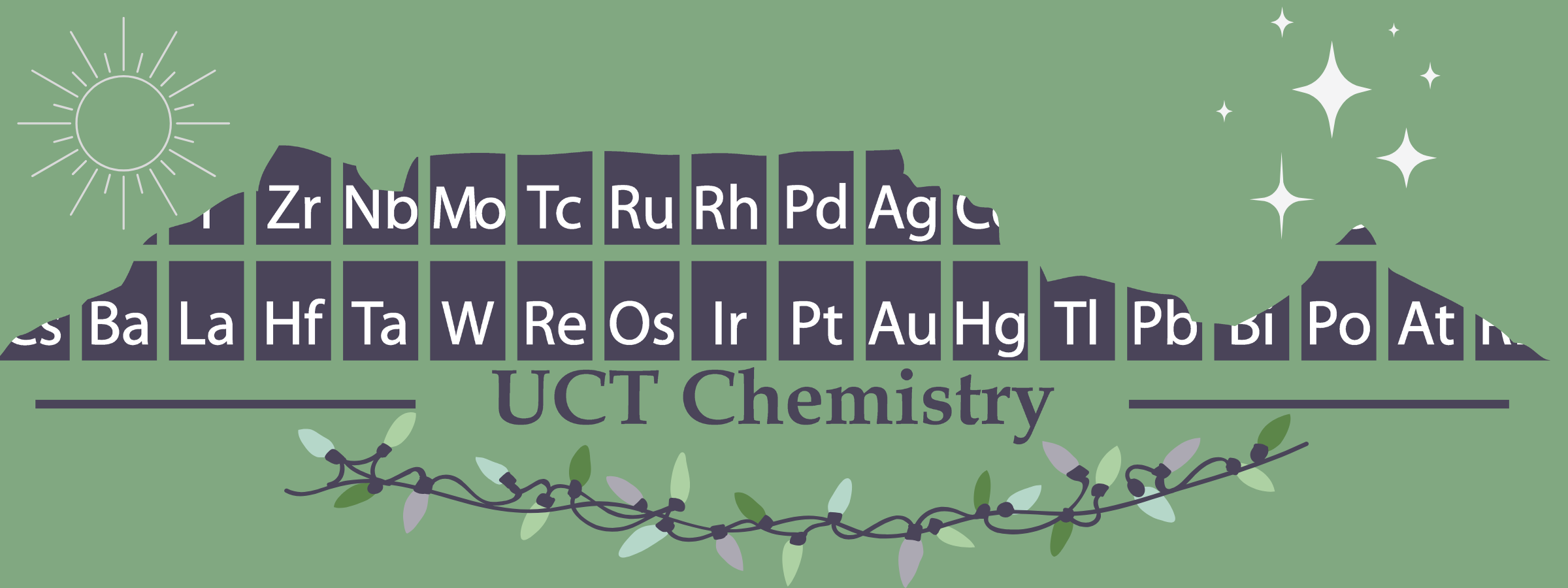Water Saving - Chemistry doing its bit
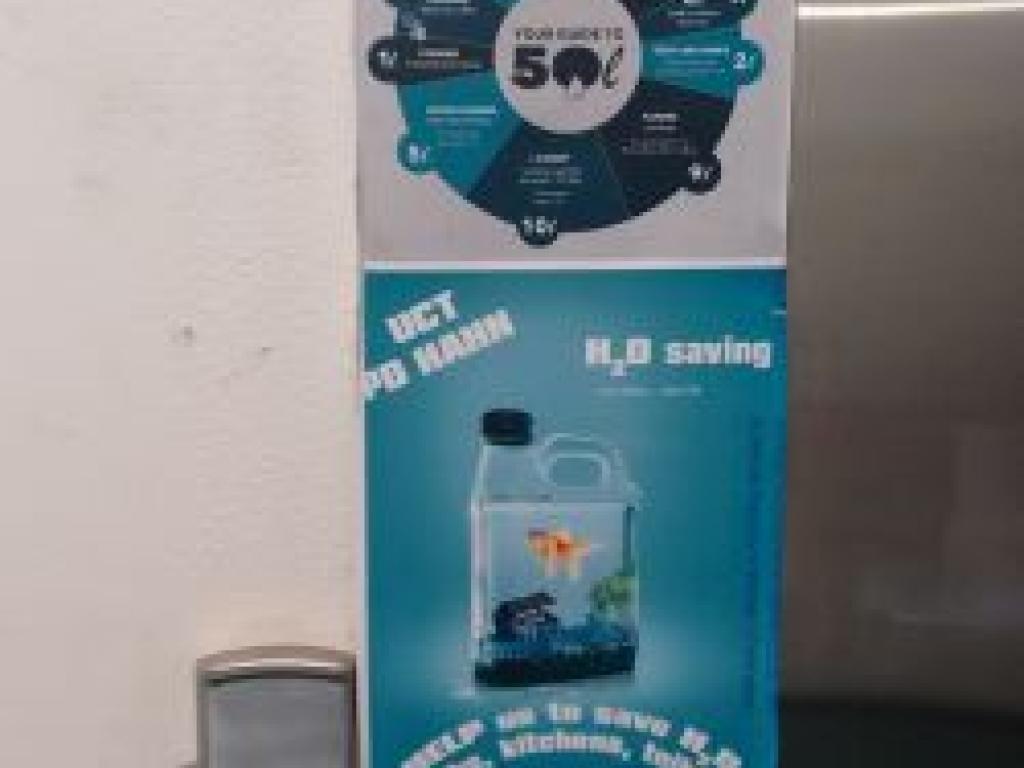
The Western Cape water crisis has forced all of us to think carefully about how we use water. Not only as individuals, but also in the collective context of our work and studies. To this end, our indomitable Chemical Safety Officer Monique Muller (and the Science Faculty and Chemistry’s official Water Champion) has been getting us all to think carefully about saving - and not only to talk about doing it, but to implement it as well. A full departmental meeting was called in January in which all staff and senior students were invited to attend and contribute their ideas. Following on from the meeting, these ideas were translated speedily into action and initiatives big and small have been seen taking effect all over the PD Hahn building.
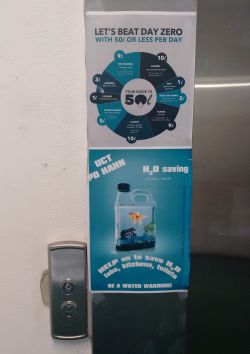
Saving in the Labs
Given that water is used extensively as a coolant and in distillation, or simply just for cleaning labs and glassware, it is critical that saving is done in a way that doesn't compromise experiments and safety. Much of the saving in labs has centred around the recycling and re-use of coolant water, as well as the recycling of water from distallation and melted ice. This water is usually fed back into the cooling systems, or is sometimes utilised for the cleaning of glassware.

Saving in the Kitchen
While it may be impossible to get hard-working students and staff to cut back on their coffee consumption, everyone has been encouraged to use water sparingly and all washing-up water is collected from the kitchen sink and recycled for use either for potplants or for flush water in the loos.
Saving in the Loos
Extreme drought does not allow for squeamish sensibilities, and Capetonians have become tough in this regard. Sometimes a spade simply has to be called, well, a royal flush. Some "Number 1 only" loos now sport nifty "wee wiser" clocks, or "flush-a-mometers", which allow users to wait until the fourth turn to flush and "reset" that toilet for the next flush round!
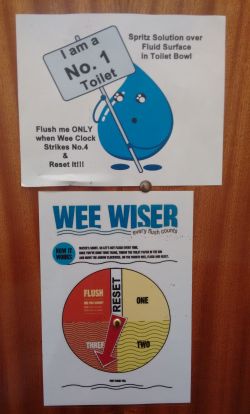
Tap water saving has also been encouraged through the use of squeeze bottles. Water is also collected and decanted into buckets for use in the toilets:
